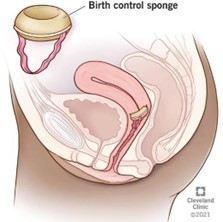The nurse is caring for a client who was recently diagnosed with breast cancer. What is the most important information needed to determine the treatment of
The CBC results from the date of cancer diagnosis
The most recent vital signs
The breast cancer stage and cancer grade,
The family’s wishes for treatment
The Correct Answer is C
The breast cancer stage and grade are critical factors in determining the appropriate treatment plan. The stage describes the extent of the cancer, including how large it is and whether it has spread to nearby lymph nodes or other parts of the body. The cancer grade provides information about how abnormal the cancer cells look under a microscope, which can help predict how fast the cancer is likely to grow and spread.
While CBC results (option a) and vital signs (option b) may provide some information about the client's overall health, they are not the most important factors in determining breast cancer treatment. Similarly, while the family's wishes for treatment (option d) are important to consider, they should not be the sole determining factor in deciding the best course of action for the client's cancer treatment.

Nursing Test Bank
Naxlex Comprehensive Predictor Exams
Related Questions
Correct Answer is B
Explanation
The contraceptive sponge is a barrier method of contraception that is inserted into the vagina before sexual intercourse. It contains spermicide and blocks the sperm from reaching the egg. The sponge must be left in place for at least 6 hours after intercourse before it is removed. Don't leave it in for more than a total of 30 hours.
a. "You can use this at any time, even when you are menstruating" is incorrect information because the contraceptive sponge should not be used during menstruation.
c. "You need to have the sponge fited before using it" is incorrect information because the contraceptive sponge is a one-size-fits-all device and does not require fitting.
d. "Clean the with mild soap and water after using it" is also incorrect information because the contraceptive sponge is a disposable device and should be discarded after use. It should not be reused or washed.

Correct Answer is C
Explanation
The breast cancer stage and grade are critical factors in determining the appropriate treatment plan. The stage describes the extent of the cancer, including how large it is and whether it has spread to nearby lymph nodes or other parts of the body. The cancer grade provides information about how abnormal the cancer cells look under a microscope, which can help predict how fast the cancer is likely to grow and spread.
While CBC results (option a) and vital signs (option b) may provide some information about the client's overall health, they are not the most important factors in determining breast cancer treatment. Similarly, while the family's wishes for treatment (option d) are important to consider, they should not be the sole determining factor in deciding the best course of action for the client's cancer treatment.

Whether you are a student looking to ace your exams or a practicing nurse seeking to enhance your expertise , our nursing education contents will empower you with the confidence and competence to make a difference in the lives of patients and become a respected leader in the healthcare field.
Visit Naxlex, invest in your future and unlock endless possibilities with our unparalleled nursing education contents today
Report Wrong Answer on the Current Question
Do you disagree with the answer? If yes, what is your expected answer? Explain.
Kindly be descriptive with the issue you are facing.
